|
Today we mark the start of a new year in the Christian calendar with the first Sunday of Advent: a season of anticipation and preparation for the coming of Jesus Christ, both in His birth at Christmas, and in His future return to reign forever over a renewed creation. Each week in Advent, we reflect on an important aspect of the Christian life as we wait faithfully for our Saviour, and serve His kingdom even now. The first Sunday of Advent, we reflect on the theme of Hope. In addition to our Service of Morning Prayer and Sermon this week, here is a great video from the Bible Project exploring how the Holy Scriptures help us to have Hope. Our service of Morning Prayer, Bulletin, and Sermon can be found here: And our Songs for this week can be found here:
0 Comments
Scripture Readings: Ezekiel 34:11–16, 20–24 | Psalm 100 | Ephesians 1:15–23 | Matthew 25:31–46
“For thus says the Lord God: I myself will search for my sheep, and will seek them out. As shepherds seek out their flocks when they are among their scattered sheep, so I will seek out my sheep. I will rescue them from all the places to which they have been scattered on a day of clouds and thick darkness.” (Ezekiel 34:11-12). Jesus is Lord. Not just of our hearts as Christians, but over all of creation. This is one of the oldest and most shocking claims that the Church has made over the last two thousand plus years. It is a claim we have confessed in our Creeds, sung in our hymns, and declared as we gather around His Table together each Sunday for generations. In times of plenty, and famine. In seasons of war, and prosperity. Under the shelter of Christendom, and under the thumb of tyrants and oppressors. At all times and in all places, at the heart of all we do is the Good News that Jesus Christ is King. And so today, the final Sunday of the Church year, we commemorate the Feast of Christ the King… celebrating the reign of Jesus our Saviour now and forever. But the question does beg to be asked: How are we to understand Christ’s rule as King of Kings, when the world around us seems to be ruled instead by the unruly? By those who are vicious… violent, and cruel… or at least indifferent to the fate of so many who suffer because of their self-centeredness? Truly, today we can see many examples of would-be kings of all sorts… striving for influence and control, seizing what they want, and turning their backs on their fellow human beings. And sadly, we know that we Christians are not immune to this temptation either. We too can get caught up in the agenda of seeking to seize the reigns of power… to rule over others as we see fit… even in God’s holy name… but completely forgetting what God’s good Kingdom is about in our quest to make our kingdoms come, and our wills be done. But the Good News is: the Kingdom is not ours… it’s God’s. And no matter how much we humans might make a mess of things, in the end, God’s will alone is the one that will be done. No matter how lost all might seem, Jesus Christ the King will set God’s broken world aright… He will bring and end to the troubles that plague us. He will sort out all our selfishness, and set us on the true pathway that leads to life. Like a good shepherd, Jesus our King goes before us, to gather, to guide, to provide, and to correct God’s wayward children, so they might come to truly share in the ways of the Kingdom of God. This image of God and His chosen Messiah acting as a shepherd occurs all over the Bible, and our readings today from the prophet Ezekiel and the Gospel of Matthew both use this powerful metaphor to show us more clearly the kind of King we serve… and what it means to share in His Kingdom… which is both comforting and challenging. In the book of Ezekiel, the Living God claims He will personally rescue His people, who at this time were scattered in Exile, and under the thumb of the rulers of Babylon. Ezekiel 34:11-12, “For thus says the Lord God: I myself will search for my sheep, and will seek them out. As shepherds seek out their flocks when they are among their scattered sheep, so I will seek out my sheep.” Such a compassionate and gracious promise made to His people. Comforting them in their distress, and darkest moments that the LORD was still their loving Saviour. Yet this comforting promise comes with a warning and a serious one… reminding them and us that the saving love of the Living God does not ignore what needs correcting: Ezekiel 34:15-16, “I myself will be the shepherd of my sheep, and I will make them lie down, says the Lord God. I will seek the lost, and I will bring back the strayed, and I will bind up the injured, and I will strengthen the weak, but the fat and the strong I will destroy. I will feed them with justice.” He goes on to spell out how some of God’s people had gone astray: turning their backs on their neighbours, and thinking only of themselves… growing strong at the expense of others, causing suffering through their own indifference. Ezekiel 34:17-22, “As for you, my flock, thus says the Lord God: I shall judge between sheep and sheep, between rams and goats: Is it not enough for you to feed on the good pasture, but you must tread down with your feet the rest of your pasture? When you drink of clear water, must you foul the rest with your feet? And must my sheep eat what you have trodden with your feet, and drink what you have fouled with your feet? Therefore, thus says the Lord God to them: I myself will judge between the fat sheep and the lean sheep. Because you pushed with flank and shoulder, and butted at all the weak animals with your horns until you scattered them far and wide, I will save my flock, and they shall no longer be ravaged; and I will judge between sheep and sheep. We might have a tendency see ourselves as the oppressed and innocent sheep, and to write off those who rub us the wrong way as those who God is promising to straighten out one day. And at times, that may be the case. But the whole point that is being made here in Ezekiel is that God Himself will judge between all the sheep, and sort them out as He sees fit… and that even if we think we’re the ones hard done by, God sees the whole picture and what’s really going on… and in the end, it’s His judgment that matters, not ours. God’s words in Ezekiel are an important message of warning to God’s own people that many of them have become self-absorbed… oblivious to the needs of their neighbours, and at times, have become their oppressors. And so, as One who truly cares for all of His sheep… for all of His human creatures, the Living God will not let this go on forever. This truly is Good News, but that doesn’t mean it’s easy to hear. God’s sheep, His people are meant to share in a completely different way of life from the selfish ways we often chase after… loving each other so that all might share in the blessings of God’s Kingdom together. And when we forget this, and get off track, and trample down or ignore others in our own self-centredness, we can expect that our Shepherd King will not stand idly by, but will take steps to sort us out. With Ezekiel in mind, let us turn to our Gospel reading from Matthew Chapter 25, to a picture Christ gives of God’s chosen King offering divine judgement over all the peoples of the earth. This well-known passage takes place right after the Parable of the Talents, which we looked at last week: which calls us to make good use of our Master’s treasure, the Gospel, with the time that we have been given. And in today’s Gospel reading we’re given a glimpse of how we are to put the Good News we’ve been entrusted with to work in the world… teaching us how we can faithfully serve our King, and do His good will today: Matthew 25:34-40, “‘Then the king will say to those at his right hand, ‘Come, you that are blessed by my Father, inherit the kingdom prepared for you from the foundation of the world; for I was hungry and you gave me food, I was thirsty and you gave me something to drink, I was a stranger and you welcomed me, I was naked and you gave me clothing, I was sick and you took care of me, I was in prison and you visited me.’ Then the righteous will answer him, ‘Lord, when was it that we saw you hungry and gave you food, or thirsty and gave you something to drink? And when was it that we saw you a stranger and welcomed you, or naked and gave you clothing? And when was it that we saw you sick or in prison and visited you?’ And the king will answer them, ‘Truly I tell you, just as you did it to one of the least of these who are members of my family, you did it to me.’” Christ tells us quite clearly: we serve Him by serving those in need. We love Him through loving our neighbours. This word is a counter message to that of our culture, and to the wisdom of this world… which offers selfishness as the best way to get ahead and be blessed. But God’s Kingdom is not based on His people chasing after their own comfort, security, and peace… but about receiving and sharing God’s rescuing love with all those around us… bringing His help and hope wherever and however we can… seeking to meet the needs of our neighbours in body, mind, and spirit… and seeing Christ Jesus our King in the face of everyone we meet. God’s Kingdom is not brought about by pursuing power, or striving to make ourselves feel secure, while others are left to suffer. God’s Kingdom calls His people to pursue peace for all… to embrace the way of self-giving compassion and love… that is, to share in the very life of Jesus Christ our King, who was crucified and died to seek and to save the lost, wherever and however they may be found. Christ our King, the promised descendant of David Ezekiel points us to, is God’s Good Shepherd who laid down His life for His sheep… not grasping after control, but out of compassion enduring the pain and the shame of the cross, so that sinners might be set free. He gave His life to bring God’s saving love to the loveless… His help to the helpless… binding Himself in humility to those who suffer… and saying to us that when we serve them we’re serving Him… and when we neglect them, we neglect Him as well… which is a truly dreadful thought. But as severe as this all is, these words from Ezekiel and St. Matthew are not meant to fill us with terror, but to warn and remind us of the ways of our Saviour King, who seeks to bring even His most wayward… selfish… and sinful sheep back into His fold… in His righteous judgement, compassion, and rescuing love, correcting them, and turning them back from their self-centred ways, so that they too might experience the blessings and joys of His eternal Kingdom… instead of the truly bitter end that awaits those who only serve themselves. The Kingdom of God shines out in the world when we Christ’s people share in the life of our King: when our ways conform to His ways, and our wills submit to His, and His holy love shapes all that we do. None of this is possible apart from His grace, and the Holy Spirit at work in and among us… binding us to our Saviour, who goes before us as our Good Shepherd… gathering, guiding, providing for, and correcting us His all too often wayward sheep. So today, as we celebrate the Feast of Christ the King, and confess Him as Lord of all, including our often selfish and unruly hearts… let us trust in His rescuing love, even for our selfish and unruly world. Let us remember the Living God’s eager desire to seek and to save the lost… to bring help and hope to the helpless and the hopeless… to straighten out and correct all that is crooked and corrupt, and set it all right at last. And let then us serve our Saviour Shepherd King by sharing His self-giving love with all those around us, especially those in need. Trusting that everything we do for them… and for Him, brings His good Kingdom to light, so that all of creation may share in the blessings and joy of knowing that Jesus is Lord, now and forever. Amen. Today we commemorate the Feast of Christ the King, Jesus our Saviour, who with the Father and the Holy Spirit reigns now, and will forever more. And yet, we can often misunderstand the true nature of Christ's Kingdom, and so we can easily fail to see His reign at work, and how His reign takes root in our lives. Here is a great video from the Bible Project that explores the surprising way in which Jesus Christ is King, entitled The Last Shall Be First: For those who want to dig even deeper, here is a great 11 Episode Podcast series exploring the same theme: Our service of Morning Prayer, Bulletin, & Sermon for this week can be found here: And our Songs can be found here: Scripture Readings: Zephaniah 1:7, 12–18 | Psalm 90 | 1 Thessalonians 5:1–11 | Matthew 25:14–30
“But since we belong to the day, let us be sober, and put on the breastplate of faith and love, and for a helmet the hope of salvation. For God has destined us not for wrath but for obtaining salvation through our Lord Jesus Christ, who died for us, so that whether we are awake or asleep we may live with him.” (1 Thessalonians 5:8-10). What is it that keeps us from making good use of what we have been given? I can remember as a child, way back when in middle school, discovering a love for writing poetry. We were given an assignment to create a few poems of our own… and I found myself really enjoying it… and was actually quite proud of the few words I was able to put together. I remember feeling like I had discovered some new gift… some hidden treasure… but one that I didn’t know how to handle. In fact, the feeling that stands out the most in these memories is fear. What if I tried to write more poetry, but then only ended up failing? Or at least, failing to measure up to my own newfound ideals. What if others didn’t like, or didn’t understand my poems? What if I wasn’t as good as I thought I was? All of these fears were swirling around in my pre-adolescent brain. And so, I did what lots of folks do: I let my fear call the shots, and I stopped writing poetry. Which just about guaranteed that I’d never become a good poet. But at least I wouldn’t be a failed poet, right? What is it that keeps us from making good use of what we have been given? Your passion might not be in poetry… but we all have things in life that do make us feel alive, and gifts we can share with our world… whether we recognize them or not. But sometimes we all can be tempted to hide away our abilities… to not use the gifts that we’ve been given in life… burying our talents, and letting them just waste away. Which really is a waste. This all sounds a bit like our Gospel Reading today, doesn’t it? I mean after all, it talks about ‘talents’ buried in the ground… and how that’s a bad idea. What else could Jesus be talking about than reminding us that we shouldn’t be afraid to make the most of our talents, and the opportunities that we’ve been given? As is the case with all of Christ’s parables, the point is actually a little more complicated than it might seem at first… challenging and calling us to learn how to live in God’s Kingdom, here and now. The parable of the talents, that our Lord tells is less about failing to live up to our own potential, from a human point of view… and much more about the very real dangers of complacency for God’s people… warning us of the high cost of not being faithful with the precious treasure that has been entrusted to us. A warning we all need to heed. But as always, the warnings we find in the Scriptures are a vital part of God’s Good News… shaking us up from our spiritual slumber, and complacency… and offering us the way of salvation instead. In our first reading from the book of the prophet Zephaniah, we heard a harsh warning for God’s people in the kingdom of Judah, about the coming consequences of their continued unfaithfulness to the covenant… their unique relationship with the Living God that was to shape everything that they did. Through Zephaniah, God challenged His people’s complacency when it came to living God’s way in the world, which would not be ignored… and would lead to their eventual Exile in Babylon. “At that time I will search Jerusalem with lamps,” God says, “and I will punish the people who rest complacently on their dregs, those who say in their hearts, ‘The Lord will not do good, nor will he do harm.’” (Zephaniah 1:12). The people set apart by the mercy and grace of the Living God were living their lives as if their Lord was completely removed from the picture. As if their relationship to the Master and Maker of heaven and earth made no difference to them at all. ‘The Lord will not do good, nor will he do harm.’ ‘So, let’s just get on with things, and not worry about where God fits in.’ Here we find at work a complacency that comes from spiritual apathy and disbelief. A path that we know led the Kingdom of Judah down the path of destruction. Yet remember too, that even this exile wasn’t the end of Judah’s story. Even though God let His complacent, unfaithful people be cast out from their land, and lose all that they had, He did not abandon them, but held onto them through all of the sufferings that they had brought on themselves… speaking His words of hope to those in Exile… promises of restoration… mercy… salvation… far beyond anything that they deserved. In short, we are warned that the complacency of God’s people brings disaster. But even disasters of our own making are no match in the end for the saving mercies of our Master. This light shone by Zephaniah illumines much in the parable of the talents. It too is a warning for God’s people to remain faithful and not grow complacent. Hundreds of years after Zephaniah, Jesus of Nazareth was now confronting the descendants of those who had returned from Exile… and who were at risk of loosing all that they had been given too. But for different reasons. Though many in Jesus’ day saw themselves as faithful to the Living God and to the covenant, strictly obeying the Laws and Teachings of Moses… again and again, the things Jesus would say and do exposed their own hypocrisy, and self-righteous self-centeredness… especially in their ongoing opposition to the healing and hope-filled work of the Kingdom that Jesus was bringing about. And so, Jesus told this and other parables to warn both them, and us about the consequences of becoming complacent with regards to God’s Kingdom… of living our days like it doesn’t matter what we do with this treasure we’ve all been entrusted with. He tells the story of a man who goes on a journey, and puts his slaves in charge of his estate: giving each one a portion of his riches, to manage in his absence. This treasure was measured in something called ‘talents’, a large sum of money, weighing about 34kg, or 75lbs, of precious metals, worth about 3,000 shekels. And in the story, two servants receive large amounts of their master’s treasure, manage it well, and were rewarded. While the one who received the smallest amount just buries it all in a field. And instead of receiving thanks, this ‘wicked’ slave is cast out, and loses his chance of receiving the reward and the joys intended for him. It’s worth noting that the wicked slave didn’t try and fail… he simply didn’t try at all. He wasted his time, and the opportunities he had to be faithful with his master’s money. Why? Well, in his words, he was afraid of his master… believing him to be harsh… and grasping… eager to find fault. And so, he thought it best to just do nothing… which is what fear so often tempts us to do. Fear can become such a powerful snare to keep us from living faithfully. The fear of failure. The fear of not having enough of what we need. The fear of displeasing those we want to share our lives with. Fear often tells us that it’s easier, that it’s better if we do nothing at all. Fear keeps us complacent. Fear keeps us from being faithful. And so, in this parable Jesus is bringing the charge of complacency against His people again… of falling into the trap of thinking that how they make use of their life as God’s people doesn’t really matter… and that the precious gift of God’s merciful love, and His holy ways can be handled carelessly… or worse yet, buried… so that nothing good comes from it. Christ is urging His listeners, then and now, not to squander the time and the opportunities that we’ve been given… to take our calling to be God’s faithful people in this world seriously... to recognize that we’ve been entrusted with the treasure of the Gospel… the Good News of God’s precious saving love, given to the world in Jesus our Lord. And that if we want to share in the great joy of our Master, and have His Good Kingdom grow in and through us, we can’t simply bury it and forget about it, and go about our lives as if it doesn’t matter. Christ wants us to make good use of what we’ve been given… that is, the faith, the love, and the hope that we have received in Him. At the cross, Christ shows us the true heart of God, who is not some harsh and unfair master, but our gracious, merciful Lord who longs to rescue His world, sending His beloved Son to reconcile us to Himself, despite all our failures, and fears. Unlike the wicked servant in the parable, we don’t have to be afraid that our Lord is out to get us… waiting to find fault, and cast us away. Because of Jesus, we can trust that He truly wants us to share in His blessed life… and He wants us to be a part of sharing this life with all those around us. And unlike fear, this deep conviction that we can depend on God’s enduring mercy and love does not lead to complacency, but spurs us on to live God’s way… helping us stay true to the One who stayed true to us to the end… our precious Saviour Jesus Christ the Crucified and Risen Lord. So as St. Paul implores us, along with the Thessalonians: “since we belong to the day, let us be sober, and put on the breastplate of faith and love, and for a helmet the hope of salvation. For God has destined us not for wrath but for obtaining salvation through our Lord Jesus Christ, who died for us, so that whether we are awake or asleep we may live with him.” (1 Thessalonians 5:8-10). So, will we make good use of what we’ve been given? Remember, it’s not about perfection, about never making mistakes, or stumbling… or failing. It’s about trusting in the mercy and grace of our Saviour, Jesus Christ, and treasuring the Good News of what He has done for us and for the world… reconciling us to God through the gift of His body and blood, and rescuing us from our own disasters so that we all can find forgiveness and new life in His name. So, what can we do today to make good use of this precious treasure that we’ve been entrusted with? How can we be faithful stewards of God’s gracious mercy and saving love? Each of us has our own part to play in God’s Kingdom. Our own gifts from God’s Holy Spirit, given to build up God’s family the Church, and to share His Good News with the world… not perfectly in our own strength, but trusting in God’s perfect love. So, when we’re tempted to give into fear, and complacency, let’s look to Christ Jesus our Saviour, and ask Him to surround us with the faith, and love, and hope we need to be God’s people today… eager and able to share with the world what we have received in Him. I want to end now with a personal note, and share a poem I wrote many years after middle school… after starting to confront my fears, and slowly coming to see that doing nothing is the best way to miss out on all the joys of learning, and growing, and living, and receiving grace. This poem’s called “Perfect”. ___________________________________ Perfect Such a lovely and hateful word tossed about to praise and to Destroy An unbearable weight born by the loving the caring the peace-wanting fellows who cannot bear Paining another An unbearable weight thrown on their backs by merciless hard hearts to forget their own Failings An unbearable weight shouldered by LOVE for the sake of oppressed and oppressor …you and I LOVE loved us all Perfect ___________________________________ Amen. Our service of Morning Prayer, Bulletin, & Sermon for this week can be found here: And our Songs can be found here: Scripture Readings: Micah 4:1-5 | Psalm 46 | Romans 12:15-21 | Matthew 5:38-48
“Do not be overcome by evil, but overcome evil with good.” (Romans 12:21). I’m sure it’s not news to anyone today that our world is not at peace. Sure, there are pockets here and there that have not known the horrors of war for a long time now… but even if we’ve managed to resist outright fighting, it seems more and more that our human family is set on tearing ourselves apart… turning on each other, and promoting deep divisions, some of which stretch back for generations. We might think of Russia’s ongoing invasion of Ukraine; brutally seeking to displace and seize their neighbour’s homeland. We might think of the Israeli Army’s invasion of neighbouring Gaza, attempting to end the very real threat posed by Hamas to their own existence, but destroying the lives of so many Palestinian civilians in the process. Sadly, there are so many examples of lives and countries torn apart by war… we could go on for quite some time. You all know I’m no expert on international affairs, and whatever the way forward may be to end these and other conflicts, I’m sure it’s not simple, or straightforward. But that’s true of lots of things in life: The way forward for our world is not to be found without effort, and sacrifice… laying something precious down for the sake of gaining something greater. Each year at Remembrance Day, we honour the memories of those who put their own lives in danger so others might be spared. We read the names of those from our Parish family who served in the military on behalf of our Country in war, some of whom never returned. And most of whom returned with deep wounds in body, mind, and spirit. We take time to remember the horrible costs of the conflicts that keep tearing our world apart… and we pray that God would bring the day when all wars come to an end, and His peace will reign forever. And as God’s people today, called to place our trust in Jesus Christ, and follow His ways, we remember that the way forward for us too requires sacrifice… laying something down we might hold dear in order that something much greater can grow in our world… which is what our reading from Matthew’s Gospel today is all about. Matthew 5:38, “You have heard that it was said, ‘An eye for an eye and a tooth for a tooth.’” I’m sure many of us have heard something like this saying before, even if we’re not all that familiar with the Bible. This saying occurs several times in the Bible, specifically in the Law of God given to Israel to guide them in their life together as God’s covenant people. For instance, in Leviticus 24:17-20 we can read that: “Anyone who kills a human being shall be put to death. Anyone who kills an animal shall make restitution for it, life for life. Anyone who maims another shall suffer the same injury in return: fracture for fracture, eye for eye, tooth for tooth; the injury inflicted is the injury to be suffered.” (Leviticus 24:17-20). These days, this saying can sometimes be offered as support for the principle of retaliation: that is, if someone hurts you, then they should be hurt in return. We can’t leave a bad deed unpunished… we have to get back at them. It seems like a simple, straightforward way forward: this path of retribution. And so in this light, we might hear some people with reservations say things like: “An eye for an eye makes the whole world go blind.” But as usual, there’s much more going on in this commandment than a divine demand to seek revenge. It’s actually a law intended to set limits on retribution and violence… even for the sake of justice. One way to wrap our heads around how “an eye for an eye” is intended to restrict violence and revenge might be to use the example of some modern legal practices around sentencing. I think many of us hear “eye for eye, tooth for tooth” as a mandatory minimum sentence. That is, if someone knocks out your tooth, they must have their tooth knocked out as well, and so on. But in the context of the ancient Israelites, “eye for eye, tooth for tooth” was about setting a clear maximum sentence… setting clear guidelines on how not to go overboard in punishing wrongdoers… and breaking the cycles of violent revenge that tear whole communities apart. In practice, this means that in settling conflicts the guiding principle was not to be simply “getting them back for what they did”… but seeking a way forward that publicly acknowledges the injustice and harm that was done… but within limits, and without simply giving in to the destructive desire for vengeance. Eye for eye, and no more. A tooth for a single tooth… not two. If someone breaks your arm, you can’t break both of theirs in return. A life for a life… and let it end there. That was the heart of this guideline that God gave to Israel many centuries ago to help them live together in ways that sought to deal with injustice, but without going too far. But in St. Matthew’s Gospel, we find Jesus Christ, God’s Son, calling His followers to go way beyond the guidelines provided in the Laws of Moses. Jesus, the One who completely embodies the self-giving love of the Living God, teaches His disciples to say no to vengeance, hatred, and prejudice… to forego all rights to take the path of retribution… and to instead embrace the path of forgiveness… a path He Himself has walked before us. Jesus says to God’s people: “You have heard that it was said, ‘An eye for an eye and a tooth for a tooth.’ But I say to you, Do not resist an evildoer. But if anyone strikes you on the right cheek, turn the other also; and if anyone wants to sue you and take your coat, give your cloak as well; and if anyone forces you to go one mile, go also the second mile. Give to everyone who begs from you, and do not refuse anyone who wants to borrow from you. You don’t need me to point out how radically different the way of Jesus is from the ways of our world. But before we find fault in what He says, lets seek to understand what He’s really getting at. For starters, He’s not advocating that Christians ignore evil and injustice, but that we radically change how we respond to it… in this case, by being set free from the need to seek retribution at all… a freedom found by entrusting ourselves, as well as the fate of those who do us harm to the justice and life-changing mercy of God. Laying down our natural impulse to “get back at those who hurt us”, in order that something much greater can grow in our world: the gracious peace and love of God. Matthew 5:43-48, “You have heard that it was said, ‘You shall love your neighbor and hate your enemy.’ But I say to you, Love your enemies and pray for those who persecute you, so that you may be children of your Father in heaven; for he makes his sun rise on the evil and on the good, and sends rain on the righteous and on the unrighteous. For if you love those who love you, what reward do you have? Do not even the tax collectors do the same? And if you greet only your brothers and sisters, what more are you doing than others? Do not even the Gentiles do the same? Be perfect, therefore, as your heavenly Father is perfect.” These are more than just words, they’re the path that Jesus Himself embraced: laying down His own life at the cross to win our freedom… offering Himself as the perfect sacrifice to bring God’s peace and love to our broken and backwards world… and rising again from the dead to show us that the path to life is not found by getting revenge, but by giving forgiveness… and opening up the way forward for the healing of the wounded hearts that keep us apart. An eye for an eye sets limits on our destructive desires for revenge. Forgiveness seeks to do away with it for good. It is by no means simple or straightforward, I know… but Christ Jesus the Crucified and Risen Lord shows us that forgiveness is the path to life… for us, and for our world. As followers of Jesus Christ today, in a world torn apart by bitter divisions and wounds that go back for generations, we have a truly special role to play in bringing God’s peace to and life to light: like Jesus, we are to lay down our claims for revenge… and to practice forgiveness… not simply for our own sake, but to show our world that it is possible to stop tearing each other apart, and to break the cycles of violence and retribution by sharing the grace and love that God gives to us all in Jesus Christ. So may we courageously seek to do all we can to pursue peace, here at home, and around our world. May we refuse to get caught up in the prejudice and hatred that fuels so much destruction. May we remember that Christ Jesus laid down His life out of love for every single human being, be they our loved ones, our neighbours, or even our enemies… and may that same love be at work in us, and guide us forward together. Amen. Today we at St. Luke's take time together to mark Remembrance Day as a Parish, honouring those who faced the horrors of war in order to bring life to others. We remember their sacrifices in the light of Jesus Christ, who in self-giving love gave up His life at the cross to bring God's forgiveness and peace to all the world. Below you will find the St. Luke's Honour Role and prayers. Our service of Morning Prayer, Bulletin, & Sermon for this week can be found here: And our Songs can be found here: Scripture Readings: Revelation 7:9–17 | Psalm 34 | 1 John 3:1–3 | Matthew 5:1–12
“See what love the Father has given us, that we should be called children of God; and that is what we are.” (1 John 3:1). How many of us remember having to sit at the “kid’s table” at family get togethers and holidays? For those who do, what did it feel like? Were you excited to have a bit of time away from the prying eyes and ears of parents… where you didn’t have to worry so much about being polite… or sticking to reasonable portion sizes of dessert? Or maybe you felt a bit envious… a bit left out of the adult conversations and fellowship? Counting down the years before you would get to be included in this more mature branch of the family? Now of course, there are lots of reasons why families might opt for adult and kid’s tables at get-togethers… and I can imagine it probably made things a lot easier for all involved. But as much as it might make sense in practice, having separate tables for adults and children… necessarily… separates the family… cutting off the interactions between the generations, and maybe even creating the impression that some members of the gathering are more welcome… more important more special than the others. I don’t know if you’ve ever thought about family gatherings in this light before… and I’m certainly not trying to make anyone feel bad about how their families sort through the details of their get-togethers. Goodness knows, every family has its own rhythms, traditions, and ways of doing things. But when it comes to the family gatherings of the Living God… the good news is there is no such separation. God doesn’t have a kid’s table… all are invited to dine with Him. Today our Church Family is celebrating the Feast of All Saints, a day when we remember our connection to the entire family of God… past, present, and future. It’s a day we remember the beautiful truth of the Communion of Saints… the bond we share in Jesus Christ that even death itself is powerless to sever. All Saints Day brings to mind many of our amazing brothers and sisters in Christ, whose lives and stories make known God’s holy love in all sorts of unexpected and remarkable ways. It’s a day we can cherish their legacies, and learn from their examples. And yet, sometimes the way we think about ‘saints’ can cause some deep misunderstandings about our place within God’s family… misunderstandings that can have real implications for how we choose to live here and now. For many, ‘saints’ seem like a completely separate class of Christian. An elite and elevated few, destined for spiritual greatness… models of piety and purity… almost a different species from the rest of us regular folk. But the truth is, ‘sainthood’ is really our shared identity! It’s not just for a chosen few to become saints, it’s the common calling and destiny of all who are in Jesus Christ. Being a saint, in other words, is simply what it means to be children of the Living God in this world. To be those growing up in His holy love throughout their lives, and into eternity. So when we commemorate All Saints Day, we remember along with the well-know heroes of our faith, the rest of us ‘regular believers’ too… everyday Christians committed to living God’s way, whether anyone notices us or not… following Jesus Christ, and letting His Spirit shape and guide us into God’s new life, even today. But sometimes… sometimes it’s hard to celebrate All God’s Saints. Sometimes it seems easier to just become disillusioned with the Church and our fellow Christians, especially when we’re not seeming to see and saint-like lives and behaviour out in our world… when those who claim loudly to be living God’s way carry on causing all sorts of self-centred wickedness. The hypocrisy and failures of those claiming to be God’s faithful followers has always been a real source of concern, to be sure. And at times, we can be tempted to think that sainthood is more of a dream than reality. But our Scripture readings today give us good reason to hold onto hope in this regard… a hope not based on us at all, but on the saving grace of God that’s still at work in our world. In our first reading today from the Book of Revelation Chapter 7, we’re given a glimpse of the reality from God’s perspective, through the grand vision granted to St. John the Divine. In the vision, St. John sees a multitude of people from every nation… every branch of the human family, standing before the heavenly throne, clothed in white, and singing praises to God and to the Lamb, Jesus Christ, the crucified and Risen Lord of all. Far from a defeated minority, left in misery and despair, St. John sees the vast communion of saints as a choir caught up in heavenly worship. Far from a few pockets of likeminded people, with St. John we see humans from every corner of the world, joining their voices together in the song of praise and joy. And far from being segregated and separated from one another, the saints are united in the one anthem… glorifying the Father of all, and His Son, the one Saviour of the world. This vision is the destiny of the Communion of Saints: divisions set aside, replaced by divine harmonies; each one bringing their own joy-filled voice to compliment and elevate each other. And this is the direction Jesus is leading His people even now… preparing us to share His holy love with all God’s children for eternity. This heavenly vision stands out as an open rebuke to our fractured society… exposing the lies and the sin at the heart of the racism, sexism, and everything else that cuts us off from one another, and from the holy love of God. The theologian Ben Myers makes this point about the Church in his book on the Apostle’s Creed: “There is no social barrier that could exclude a person from inclusion in this body. The boundaries of the church are as wide as the human race… The gospel is not addressed to one particular social class or ethnic group. It is addressed to every imaginable human being. There is nobody in the world for whom the message of Jesus could be irrelevant.”[1] When it comes to God’s family, the Good News of Jesus Christ has open the door for absolutely everyone to come to the table. But if this vision granted to St. John is a rebuke to our deeply divided world, that rebuke shines a bright spotlight on our sad divisions within the worldwide Church today. We Christians who claim to be God’s children, living in faithfulness, growing in love, and sharing in a holy and heavenly hope, seem to have a really hard time getting along, and remaining in communion with one another. You don’t need me to go through the long and tragic history of the Church’s shattered fellowship this morning. But even so, and maybe especially so, we need to be reminded again and again that despite all our brokenness, we are all members of just One Body, united to One Lord and through Him, to one another… a reality not just for eternity, but one we’re called to embody… to live out right now. After all, we believe, not in the segregation, but in the Communion of the Saints. This is not an added extra… something we get to put off until we feel like getting around to it. We’re talking about one of the basic tenets of the Christian faith… part of the package of the Good News of Jesus, the Gospel, that calls us to address these divisions both in our daily lives, and in our communities. The Communion of Saints is a living reality… binding us Christians to one another… and even keeping us connected to those who have died in the Lord. Again, Ben Myers says it well. Please excuse the long quote: “The greatest barrier that divides human beings from one another is not culture or language or class. The greatest barrier is death. It splits the human family into the two classes of the living and the dead. All other social divisions are petty compared to this great division. All human beings are powerless before this fundamental boundary. But in the resurrection Jesus has stepped across the barrier and restored communion between the living and the dead. He has formed one family that stretches out not only across space but also across time. The body of Christ is the most inclusive community imaginable because it includes not only those who are now living but also all believers who have ever lived.”[2] When we gather around God’s table, we do so with one another in this room, but also with every single human being who has ever or will ever belong by Christ’s side. In Him, we are truly one… whether or not we get along now… we will have to one day. In Christ, we are reconciled to God and each other, and all divisions will finally be overcome by Him. This is the most hopeful part of St. John’s vision in this morning’s reading from Revelation: the recognition that what makes the union… the Communion of Saint possible at all is that all the saints have been made saints by what Jesus Christ has done for us all at the cross. Rev. 7:13-4, “Then one of the elders addressed me, saying, “Who are these, robed in white, and where have they come from?” I said to him, “Sir, you are the one that knows.” Then he said to me, “These are they who have come out of the great ordeal; they have washed their robes and made them white in the blood of the Lamb. What we share in common, what binds us together as Christians in the Communion of Saints is nothing other than the saving blood of Jesus Christ, which alone can wash away our sin, and set us free to share in God’s holy love. Jesus Christ God’s Son is Himself the hope of all saints… He is the source of our peace, our joy, our comfort and our fellowship. Revelation 7:15-17, For this reason they are before the throne of God, and worship him day and night within his temple, and the one who is seated on the throne will shelter them. They will hunger no more, and thirst no more; the sun will not strike them, nor any scorching heat; for the Lamb at the center of the throne will be their shepherd, and he will guide them to springs of the water of life, and God will wipe away every tear from their eyes.” It is Jesus Himself who sets us apart… no one’s supposed superhuman spirituality, purity or piety plays a part. Being in communion with Jesus Christ Himself is what can make saints of us sinners… with His Holy Spirit at work in us making us more and more like Him… even now! After all, we’re not called to become saints someday… it’s God’s intentions for all of His children to share in His holy love all our days… for all God’s children to keep growing in the likeness of our Saviour Jesus. Remember what was said in our reading from the first letter of St. John this morning: “See what love the Father has given us, that we should be called children of God; and that is what we are. The reason the world does not know us is that it did not know him. Beloved, we are God’s children now; what we will be has not yet been revealed. What we do know is this: when he is revealed, we will be like him, for we will see him as he is.” (1 John 3:1-2). In Christ, we are God’s children now. And we will be made even more like Jesus, which St. John sees as a source of great motivation for us all to live a life set apart for God. 1 John 3:3, “And all who have this hope in him purify themselves, just as he is pure.” Purity, holiness, sainthood means seeking God’s grace to become like Jesus. It’s not about gaining status or glory, or winning a seat at the high table, but about receiving God’s gracious invitation to join Him at His table, and with all the saints of every age to share in the life of His beloved Son. God doesn’t have a kid’s table… all are invited together to dine with Him. There is no separation of saints by their own achievements. We’re all invited through what Jesus our Saviour has done for us all at the cross. There are no second class citizens, but as children all are welcomed, and empowered by the Holy Spirit to grow more and more Godly… more and more like our Heavenly Father, in the likeness of Jesus Christ. And though we might often be distracted by our own brokenness and our sad divisions, we can truly believe in the Communion of Saints because we believe in the Good News of Jesus at work in the lives of His people… His children. And what’s more, we’re called to put this belief into practice in the time we have together. So let us come to Christ’s Table in faith, and join with our sisters and brothers across every age, and celebrate and give thanks for God’s gracious love in Jesus Christ… the hope of all saints. Amen. [1] Ben Myers, The Apostles’ Creed: A Guide to the Ancient Catechism, ed. Todd Hains, Jeff Reimer, and Sarah Awa, Christian Essentials (Bellingham, WA: Lexham Press, 2018), 104. [2] Ben Myers, The Apostles’ Creed: A Guide to the Ancient Catechism, ed. Todd Hains, Jeff Reimer, and Sarah Awa, Christian Essentials (Bellingham, WA: Lexham Press, 2018), 105. This week we at St. Luke's GP are celebrating the Feast of All Saints, remembering the whole family of God, across time and space, set aside to be God's holy people together. Sometimes the words "saint" or "holy" can seem out of place in our world, and we're not sure about their significance in our day to day lives. Thankfully, the folks at the Bible Project have put some resources together for us to explore what the Bible means by holiness, and why it matters all year long. Here is a link to a short video from the Bible Project entitled "Holiness": And to dig a little deeper, here is a link to their three part podcast series on the same topic: Our service of Morning Prayer, Bulletin, & Sermon this week can be found here: And our Songs for this week can be found here: |
Rev. RObRev. Rob serves as the Priest-in-Charge at St. Luke's Gondola Point, and as the School Chaplain at Rothesay Netherwood School Archives
June 2024
Categories
All
|
|
5 Quispamsis Road, Quispamsis NB, E2E 1M2
Mail to: 12 Quispamsis Road, Quispamsis NB E2E 1M2 |
Contact Us
Parish Phone: 506-847-3670 | www.stlukesgp.ca | www.facebook.com/StLukesGP/ Rev. Rob: 506-608-1772 | [email protected] |
Proudly powered by Weebly

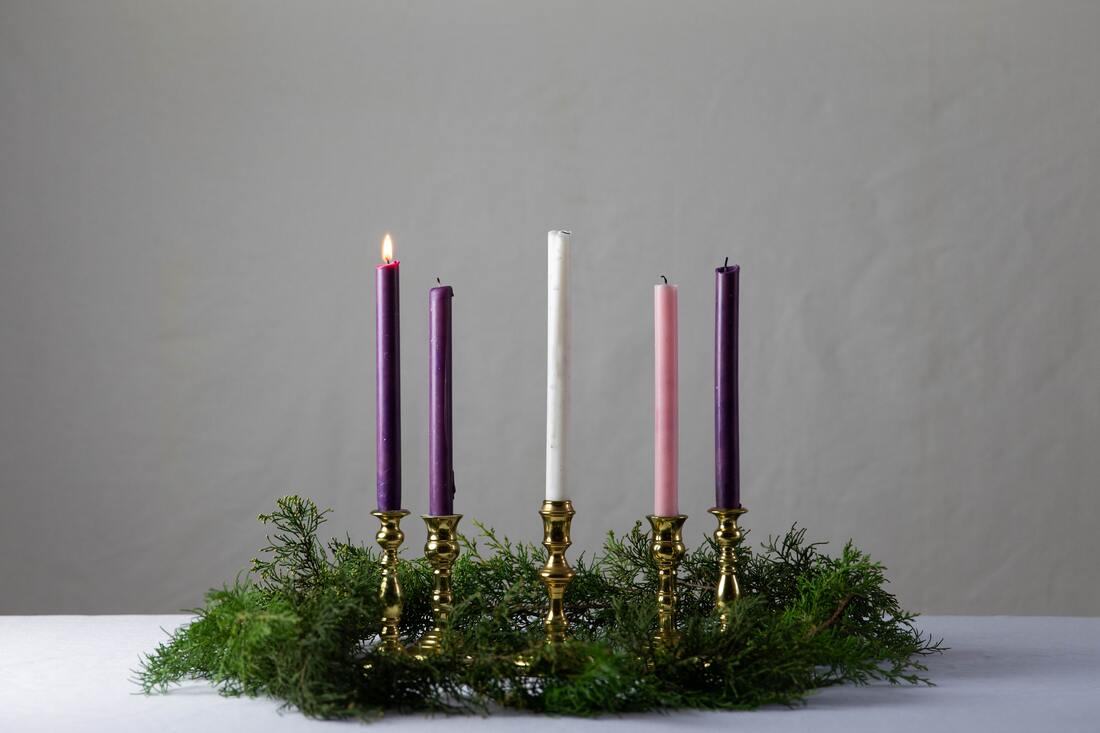

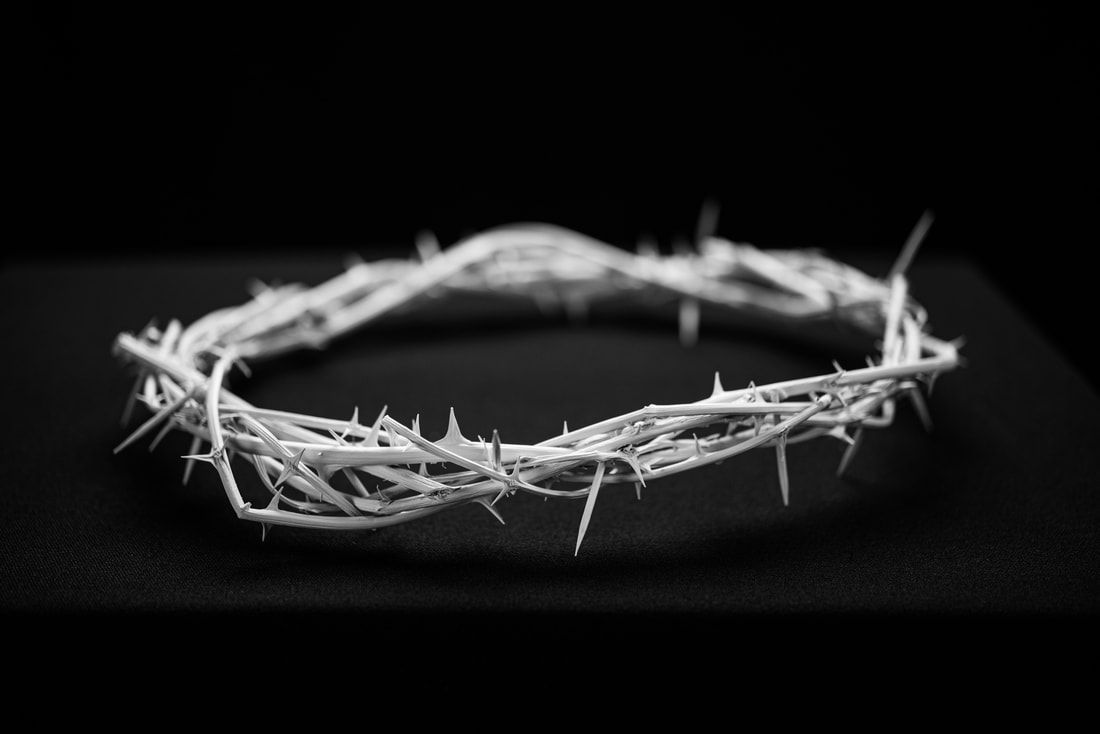
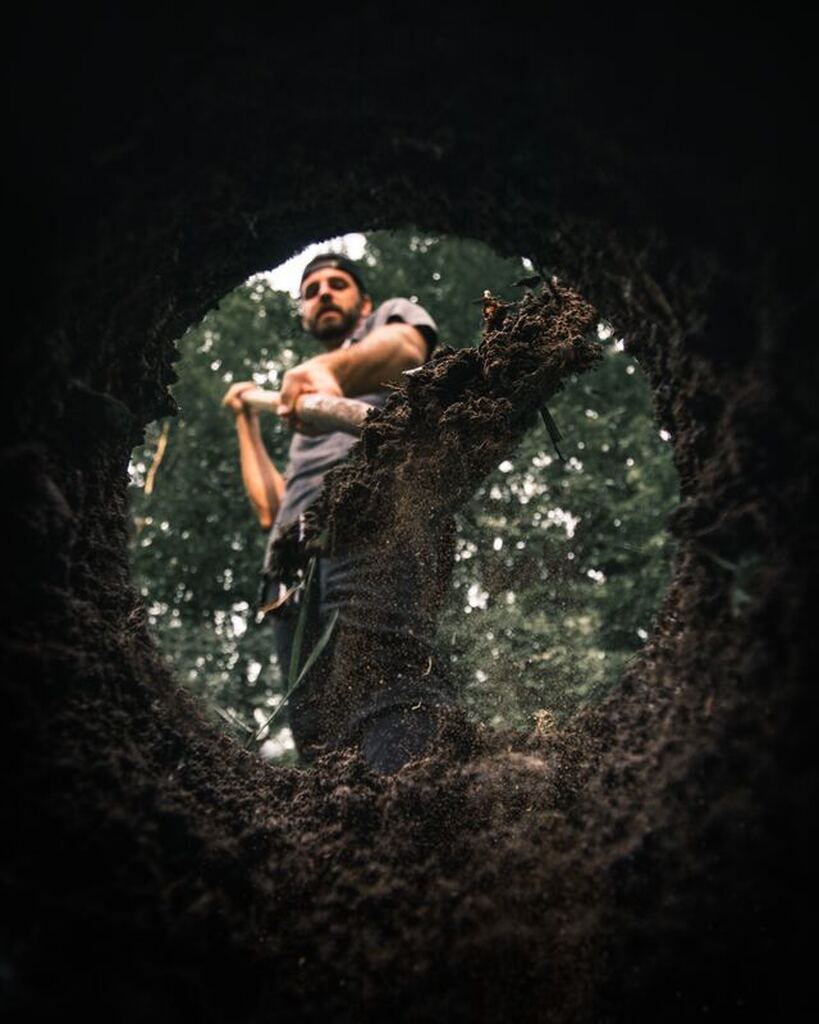
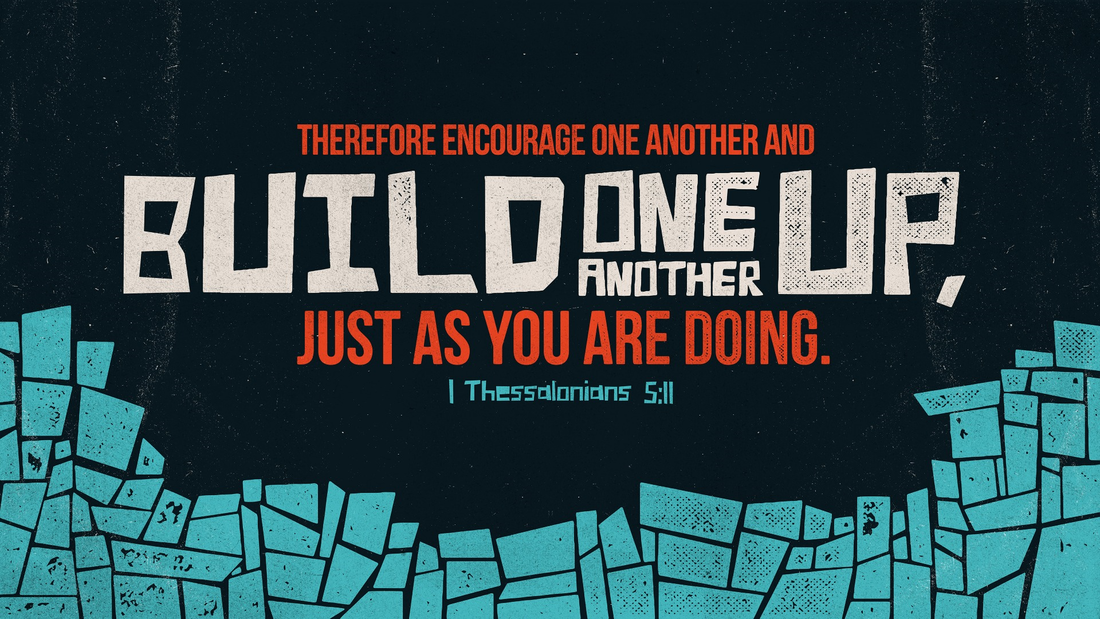

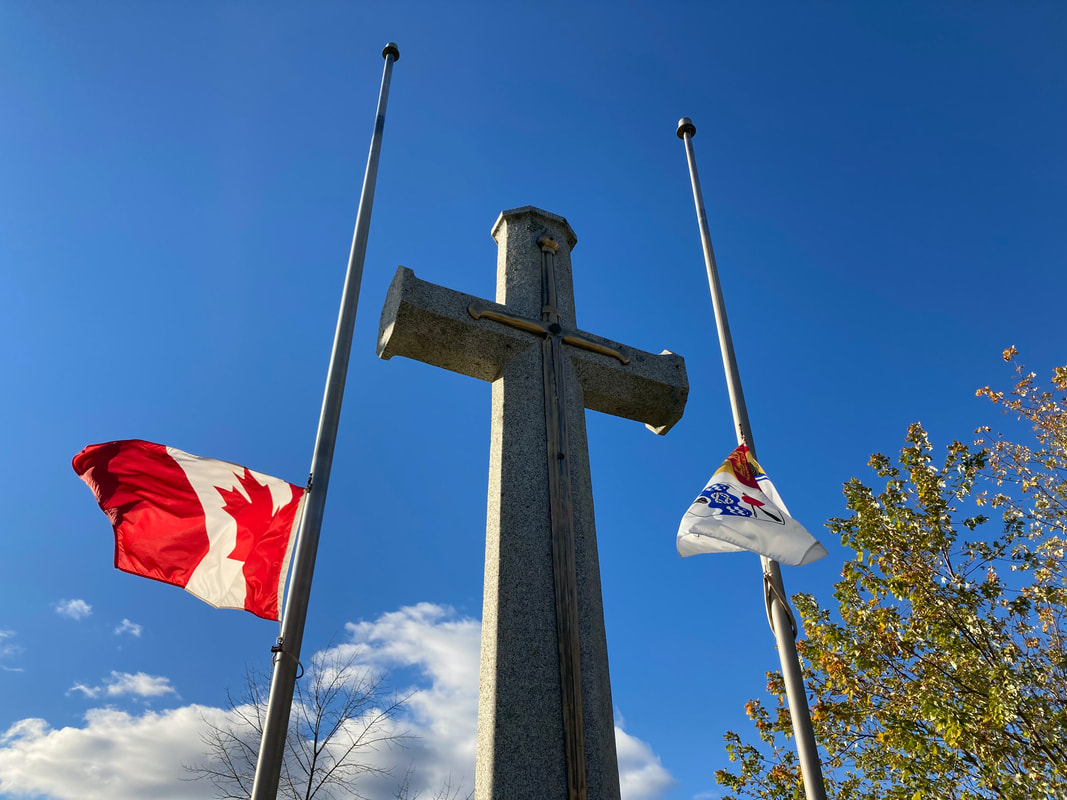
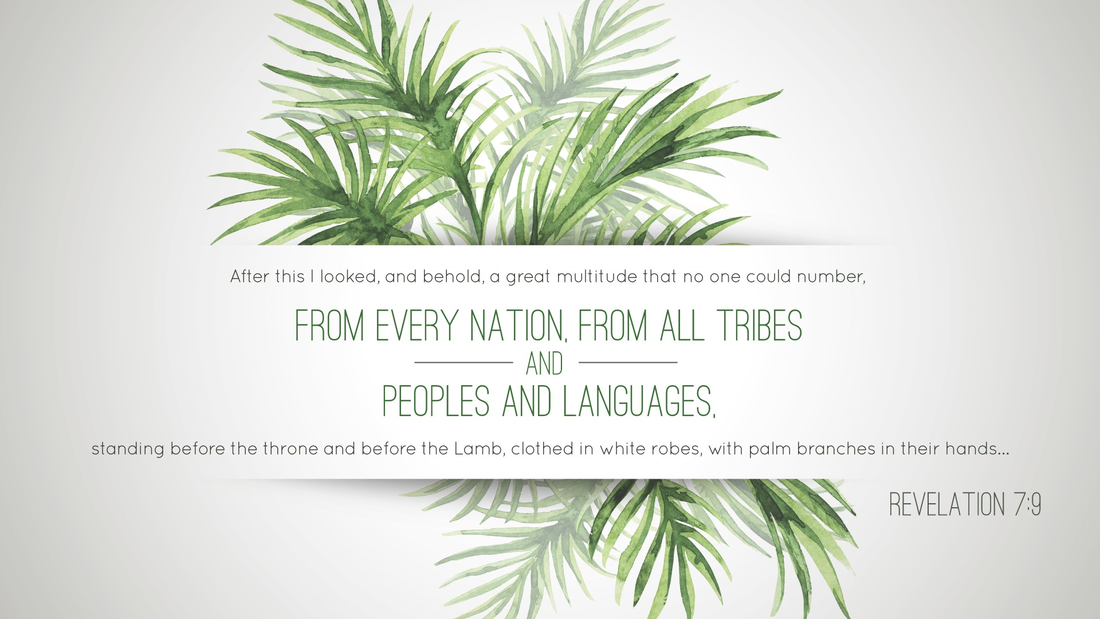
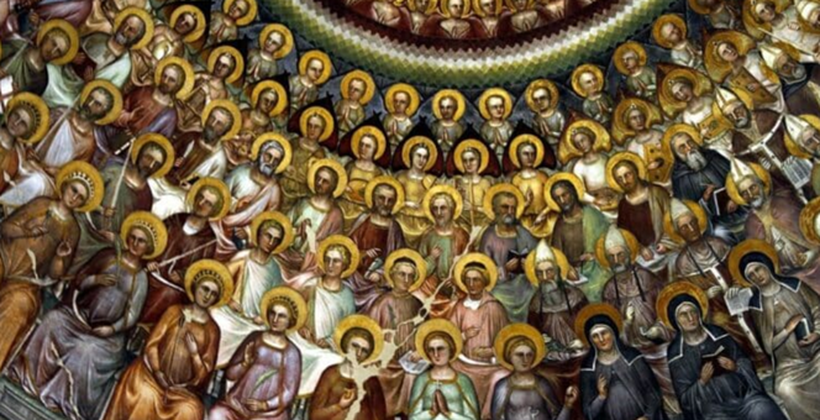
 RSS Feed
RSS Feed
